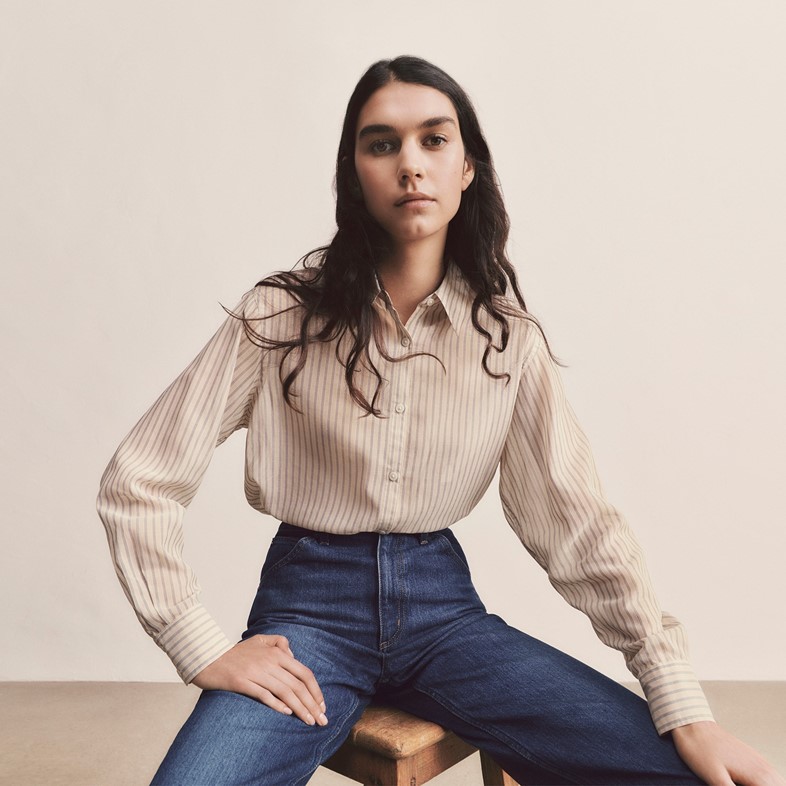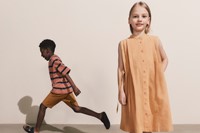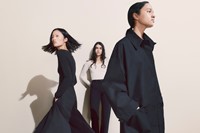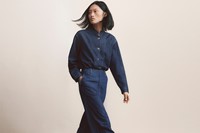“We’re interested in designing clothes that you need”: As Uniqlo U’s tenth collection for Spring/Summer 2021 is released, the designer Christophe Lemaire speaks to Dal Chodha about his approach to fashion
Who really wants to think about clothes right now? Denim jeans have a sudden unwelcome stiffness. Fitted tailoring sits uneasily on slumped shoulders. Waistband fastenings feel fussy. Function has trumped formality.
The designer Christophe Lemaire’s edited approach is the most elegant algorithm for the times. In 2016 he launched Uniqlo U – a collection of pieces embodying the Japanese retailer’s LifeWear philosophy of high-quality clothing that is universal in design and comfort. Made for everyone, everywhere. Yet it is now, as its tenth collection for Spring/Summer 2021 is released, that the endeavour to offer a simplified, modish wardrobe makes acute sense.
Lemaire says, “like everyone, we’ve had to change our way of working, forcing us to be more attentive to the objects around us and our clothes. We approach them with a vague sense of urgency, getting straight to the point and doing away with unnecessary things. And also to be a little bit more careful. To do things slowly. To take more time. To think.”
“The pandemic changed our way of life and, whatever happens next, it suggests another wardrobe” – Christophe Lemaire
In 2010 I travelled to Paris to speak with Lemaire about his own line and something from that meeting has stayed with me ever since. In the surroundings of his Marais showroom, serene despite the heavy rain lashing on the roof, we talked about his life – which included a break from the excesses of the fashion industry in the early 00s. He said: “I was always a bit on the side of the fashion circus”. Lemaire has always been more interested in real clothes for real lives. At a dinner in New York in the late-1980s, he sat next to the photojournalist Carol Troy, co-author of the jocular fashion guidebook Cheap Chic with Caterine Milinaire. Published in 1975, its premise was to promote having a few clothes that make you feel good rather than a closet full of mismatched fashions. “Find the clothes that suit you best, that make you feel comfortable, confident, sexy, good looking and happy … and then hang onto them like old friends,” they write in its introduction.
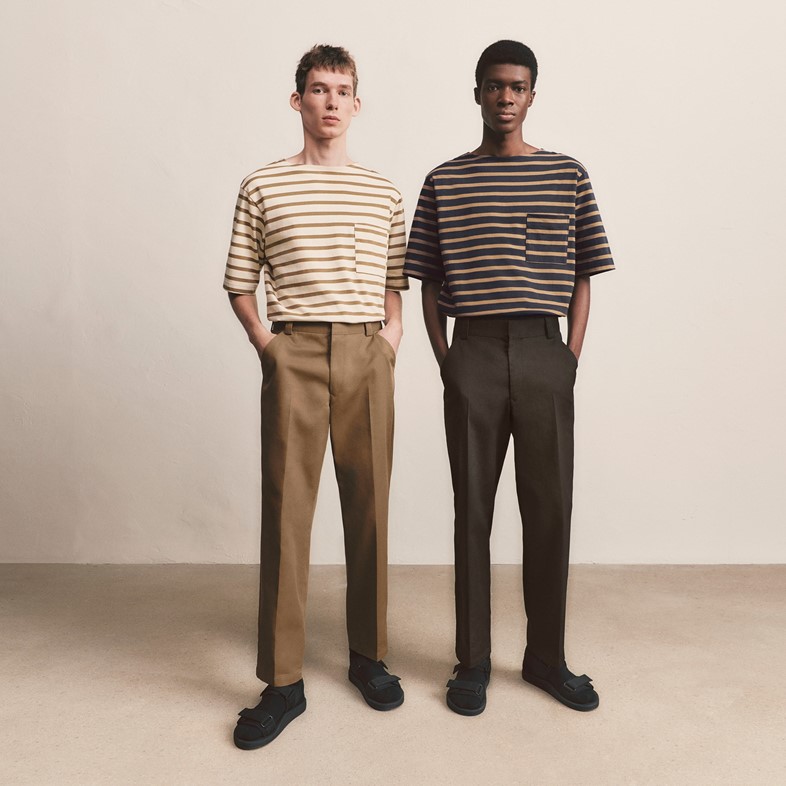
More than three decades later, Lemaire is still flicking through its pages of busy, working women discussing the merits of good, roomy men’s shirts or the revolution of Rudi Gernreich’s Lycra body stockings (and Fran Lebowitz carping about clothes with pictures on them). The importance of foundational garments over fad clothing is central to his sartorial philosophy: “In Cheap Chic you have this. It’s that great era of New York, the 1970s, with this mix and match of influences, this melting pot. It was also the first generation that didn’t have a problem mixing vintage, which was new then, with military and workwear with high fashion in a very free-minded way. It’s very inspiring today,” he says. Somewhere between the restrained opulence of his own line that he designs with Sarah-Linh Tran, and the chic pragmatism of what he does with Uniqlo U, is the gist of modern dressing.
“Of course I love fashion and silhouette, but at the end of the day we’re interested in designing clothes that you need” – Christophe Lemaire
“There is a rising sense of buying less, of waste and a focus on ecology,” Lemaire says. “We have all been caught in this rush of consumerism and there’s never time to breathe. The pandemic changed our way of life and, whatever happens next, it suggests another wardrobe. More home-wear but something that you wouldn’t be ashamed to be seen in out in public. Comfort. Ease.” Essential pieces with a point of view.
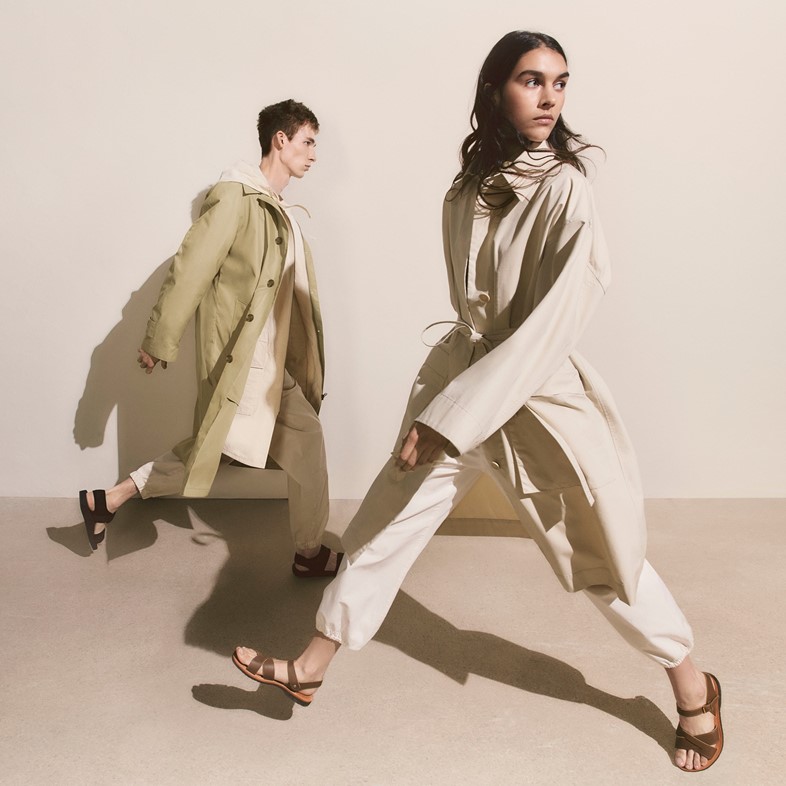
There is, what Lemaire calls “a neo classicism” in the air. “All you need is a good five pocket pair of pants, a good hoodie, a good single breasted trench coat. What makes a difference will be the colourway, the fabrication, the details, the cut, but it’s very much about the archetypes. We just want the good classics. I grew up and learned my craft in the late 1980s and in the 90s at a time where fashion started to become very conceptual, there was also this obsession for conceptual art, strong images and spectacle. But I was always very sceptical of that. Of course I love fashion and silhouette, but at the end of the day we’re interested in designing clothes that you need. And of course, we try to make them clothes that you want. Something very down to earth, very neat, solutions for every day.”
